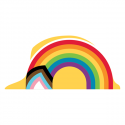Meet Our Students, Alumni, Staff & Faculty

Dionne Aleman (she/her)
Associate Professor
MIE
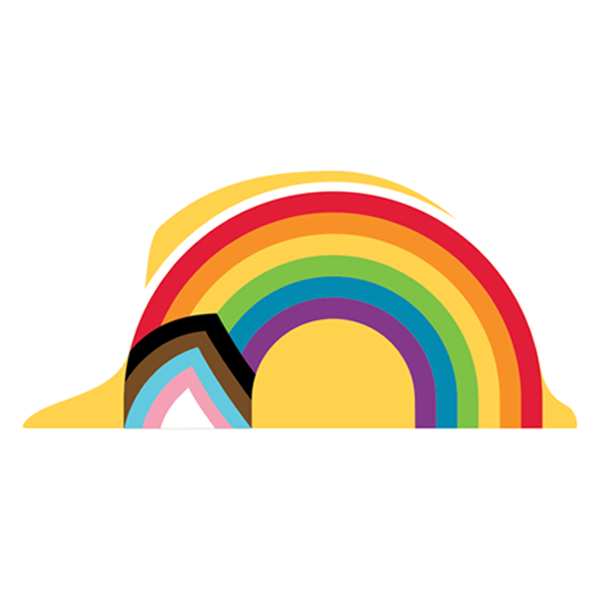
University of Toronto Engineering Staff/Researcher (she/her)

Brendan Leder (he/him)
ECE 2T0

Melissa Fernandes (she/they)
Mental Health Programs Officer
U of T Engineering

Catherine Ye (she/her)
CivE 2T3

Sonia De Buglio (she/her)
Director, Alumni Relations
U of T Engineering
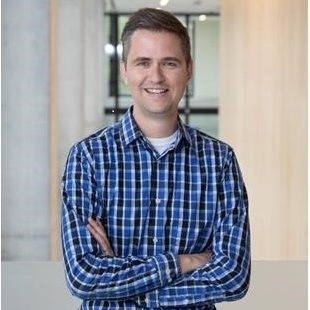
Stephen Johns (he/him)
Undergraduate Student Advisor, Years 1 & 2
Engineering Science
How are you staying connected to your friends/family/chosen family and 2SLGBTQ+ communities right now?
"I have been scheduling lunch-time phone calls with friends, participating in The ArQuives trivia nights, and gearing up for Camp fYrefly (a queer youth camp that I volunteer at each summer)."

– Melissa Fernandes
"Mostly group chats and the occasional video call, and the occasional backyard, physically-distanced coffee with our friends who live in town."

– Dionne Aleman
"Texting and video calling, occasionally meeting socially distanced."

– Brendan Leder
"Mostly through WhatsApp channels. I have a group of queer friends who post about a range of personal/political issues. We actually speak more regularly than we used to, but I'm missing the face-to-face connection time."
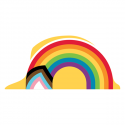
– U of T Engineering Staff/Researcher
What inspires you about engineering or the U of T Engineering community?
"Ever since joining U of T Engineering five years ago I’ve been constantly inspired by the way our community members take care of one another. Engineering Science, where I support first- and second-year students, is an incredibly supportive and collaborative environment. I love seeing how our students take care of one another, whether it’s by studying together, teaming up for design projects or helping each other through personal challenges. The future is in great hands; so is the present, for that matter."

– Stephen Johns
"We are a mosaic. We all bring our different and eclectic experiences to the table. We may not be perfect at everything, but through honest reflecting, and through a little measuring and adjusting, we are getting better every day. I love that I work with colleagues, students, and alumni who all believe in striving to be better and achieving more!"

– Sonia De Buglio
"Over this past year I have seen the U of T Engineering community reimagine itself. This persistence and creativity to continue finding ways of connection, learning and advocacy inspires me to do the same."
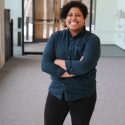
– Melissa Fernandes
"I'm inspired by the growing number of activist voices within the U of T Engineering student body."
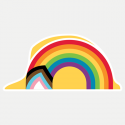
– U of T Engineering Staff/Researcher
"The strong sense of community between students and the large range of opportunities to do things, be that through joining clubs or taking part in different activities like pride."

– Brandon Leder
"I feel most inspired about how hardworking the U of T Engineering community is. In addition to everyone's drive and strong work ethic, the community is overall very accepting and I've been faced with nothing but kindness and respect in my own personal experiences."

– Catherine Ye
"Our ability to solve problems and persevere. I'm amazed at how well my undergraduate students and research team have dealt with difficult, sometimes tragic, circumstances during the pandemic, yet still keep showing up with as much dedication and positivity as anyone could hope for even outside a global pandemic."

– Dionne Aleman
How does your unique positionality – as a queer engineering student, educator, researcher or staff member – impact your perspective in your work?
"As a queer engineering student, and also as a Chinese-Canadian woman of colour, I feel especially motivated to contribute my unique perspectives and considerations to engineering problems. Diverse representation in educational spaces is important for various reasons, because every individual's unique cultural and personal experiences can be applied to create a more inclusive future for engineering. I hope to spark conversations among my peers about the intersectionality of race, gender, and sexuality, and how it relates to engineering. By understanding what systemic barriers exist in the world or in engineering workplaces themselves, we can approach engineering problems with a broader perspective, and work towards dismantling these barriers with engineering solutions."

– Catherine Ye
"As a member of the Faculty's Engineering Equity, Diversity, and Inclusion Action Group and as an academic advisor, I am committed to becoming a better ally by exploring new information and gaining a greater understanding of the challenges and barriers faced by our 2SLGBTQ+ community. I have the privilege of utilizing my position to provide front-line support to students while acting as a point of reference for additional resources within the Faculty and the University community."

– Stephen Johns
"It doesn't really impact my perspective."
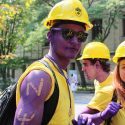
– Brandon Leder
"As a queer staff member, I center intersectionality in my work and try to recognize that everyone's individual experience will be different and impacted (positively and negatively) by the many layers that make up their being."
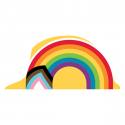
– U of T Engineering Staff/Researcher
"The problems I tackle in my research relate to quantitative decision-making in medicine and healthcare, and as a member of the LGBTQ+ community, I am always on alert for how systematic inequality could be avoided in the areas I study using engineering approaches to guide medical and healthcare decisions. Sometimes we can connect to census data for regional prevalence of minority groups if relevant to the problem at hand, but unfortunately, the data needed to assess and overcome such issues usually isn't available. There isn't a checkbox for "gay" in medical records."
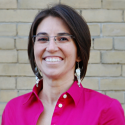
– Dionne Aleman
"I'm not a queer staff member/alumnus, but I strive for better understanding of the issues so that we can build a community where everyone feels safe and at ease."

– Sonia De Buglio
"I'm not sure if it's my positionality as a queer researcher or my disciplinary training in the social sciences, but I spend a lot of time framing and re-framing research questions before trying to answer them. Sometimes slowing down to ensure that the front end of a project is thoughtfully framed helps prevent the pitfalls of expedience. This is especially true for EDI research."
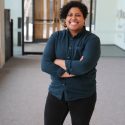
– Melissa Fernandes
What challenges do you face as a queer U of T Engineering community member? What is a barrier you’ve faced at U of T?
"The engineering community is still very heteronormative in its customs and culture, as a result of how it's been developed over time as a previously very male-dominated industry. I have only met a small handful of queer engineering students, who I've been able to form some great connections with through individual conversations – however, I have not found many (if any at all) comfortable, large, open queer spaces for the 2SLGBTQ+ engineering demographic.
There are several simple steps that can be taken by faculty members to create an immediately more inclusive environment for students: introducing themselves with their preferred pronouns, using more gender-neutral terms, and avoiding language that perpetuates male-female gender binary norms. By making these improvements, not only will queer and/or non-binary identifying students feel less isolated, but it will also normalize these actions, and inspire students to be more inclusive with their personal actions as well."

– Catherine Ye
"The biggest issue I have faced is not always feeling like I can come forward with or be taken seriously about concerns about my on-campus safety due to harassing students or highly inappropriate personal attacks in grant reviews, since people don't come right out and say their actions are motivated by my gayness. As a junior faculty member, you don't want to rock the boat or make excuses, and now that I am senior faculty member, these issues don't happen as often anymore, and complaining about things in the past doesn't seem productive since I do believe they would be handled seriously now. This trap of not being able to say anything in the moment and then not being able to say anything later is a common conundrum for all minority groups. Times are changing though, and I always encourage my junior colleagues here at U of T and internationally to be upfront about issues they face."

– Dionne Aleman
Is there anything else you'd like to share with the U of T Engineering community?
"Through real, and open conversations we can build a community that we are all proud to be a part of!"

– Sonia De Buglio
"The light at the end of the pandemic tunnel is getting brighter by the day, but in the meantime, never forget how challenging the past 15-plus months have been. Give yourself a great, big pat on the back for getting through them and don’t ever downplay the accomplishment. Sometimes, doing ordinary things in extraordinary circumstances makes them extraordinary in and of themselves."

– Stephen Johns
"Be kind to those around you, and make a conscious effort to be inclusive in your conversations. You never know how the people surrounding you may feel about their own gender identity or sexuality (even if you think you do), as it is isn't something you can tell on the surface. Provide people a safe space to feel comfortable in their identity, because it can make a big difference!"

– Catherine Ye
"Be loud about injustices that you see or experience, or be discrete, but don't be silent."

– Dionne Aleman
"Thanks for the opportunity to share my thoughts and experiences"
